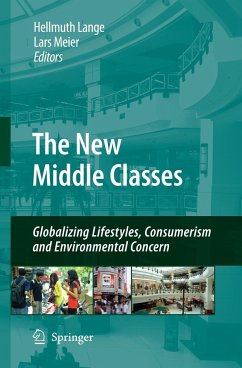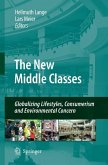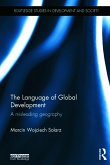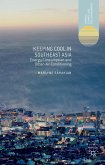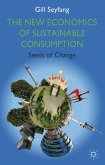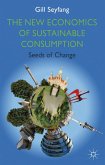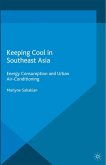The new middle classes of developing countries are held responsible for boosting extremely resource-intensive lifestyles beyond the OECD-world thus thwarting ongoing efforts to attain a more sustainable future. But how homogeneous are their consumption patterns and why should not globalization include the extension of environmental concern, too?
"The New Middle Classes" challenges a narrow understanding of lifestyles and consumption by analyzing the issue not only in terms of attitudes and preferences but of socio-economic features and governmental policies, too.
With respect to the developing and threshold economies, it is no longer the poor who are the only focus of media attention. Today, the new middle classes are about to take centre stage, too. With their lifestyles and attitudes, the new middle classes are considered to be both the products as well as the promoters of globalization. They are a highly heterogeneousgroup in socio-economicterms as well as in habits 1 and preferences, including their societal role as consumers and citizens. The ?rst wave of scholarly and political attention can be traced back to the mid-nineties. The focal point was surprise and unease about indubitable symptoms of consumerism which, until then had been seen as a characteristic of the richest western societies. However, since the nineties, consumerism has run rampant in - velopingcountriestoo.Thishasparticularlybeennotedwithrespecttotheemerging middle classes in South East Asia. The "will to consume seemed inexhaustible, and appetites insatiable. This rage to consume [...] was both celebrated and feared by political leadersand other social/moralgatekeepers,who beganto condemnthe p- cess as 'Westernization' and even 'westoxi?cation"' (Chua 2000: xii). Ever since, the debate about the lifestyles of the new middle classes and their role in society has gained momentum.
Hinweis: Dieser Artikel kann nur an eine deutsche Lieferadresse ausgeliefert werden.
"The New Middle Classes" challenges a narrow understanding of lifestyles and consumption by analyzing the issue not only in terms of attitudes and preferences but of socio-economic features and governmental policies, too.
With respect to the developing and threshold economies, it is no longer the poor who are the only focus of media attention. Today, the new middle classes are about to take centre stage, too. With their lifestyles and attitudes, the new middle classes are considered to be both the products as well as the promoters of globalization. They are a highly heterogeneousgroup in socio-economicterms as well as in habits 1 and preferences, including their societal role as consumers and citizens. The ?rst wave of scholarly and political attention can be traced back to the mid-nineties. The focal point was surprise and unease about indubitable symptoms of consumerism which, until then had been seen as a characteristic of the richest western societies. However, since the nineties, consumerism has run rampant in - velopingcountriestoo.Thishasparticularlybeennotedwithrespecttotheemerging middle classes in South East Asia. The "will to consume seemed inexhaustible, and appetites insatiable. This rage to consume [...] was both celebrated and feared by political leadersand other social/moralgatekeepers,who beganto condemnthe p- cess as 'Westernization' and even 'westoxi?cation"' (Chua 2000: xii). Ever since, the debate about the lifestyles of the new middle classes and their role in society has gained momentum.
Hinweis: Dieser Artikel kann nur an eine deutsche Lieferadresse ausgeliefert werden.
Aus den Rezensionen:
"... Der Band bietet damit eine umfangreiche Übersicht über die Vielfalt dieser neuen Lebensstilisierungen, ihre Auswirkungen und die Entstehung von Umweltbewusstsein und stellt damit einen wichtigen Schritt zur Beantwortung weiterer Fragen zur Entwicklung nachhaltiger Lebensstile dar ..." -- Esther Baumgärtner, in: Geographica Helvetica, 2010, Issue 4, S. 303
"... Der Band bietet damit eine umfangreiche Übersicht über die Vielfalt dieser neuen Lebensstilisierungen, ihre Auswirkungen und die Entstehung von Umweltbewusstsein und stellt damit einen wichtigen Schritt zur Beantwortung weiterer Fragen zur Entwicklung nachhaltiger Lebensstile dar ..." -- Esther Baumgärtner, in: Geographica Helvetica, 2010, Issue 4, S. 303

